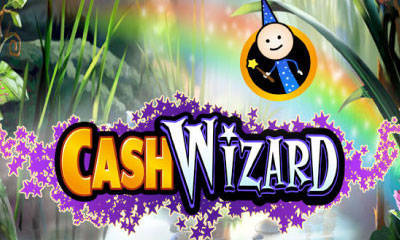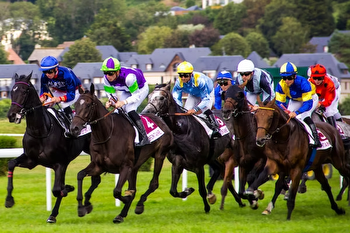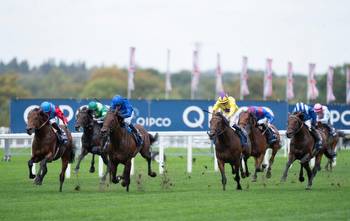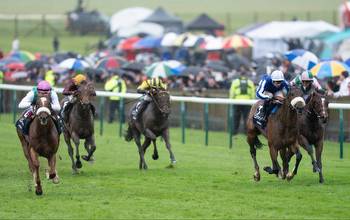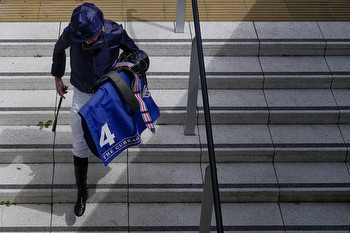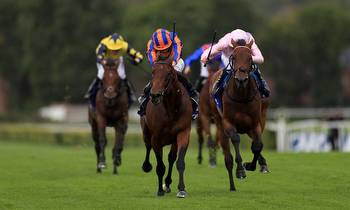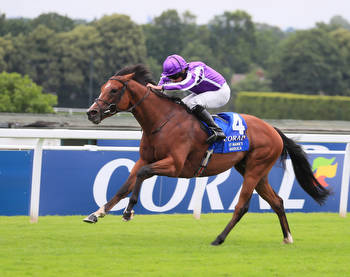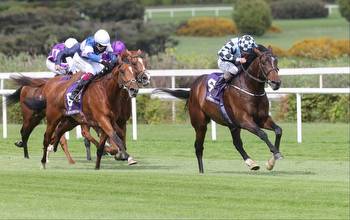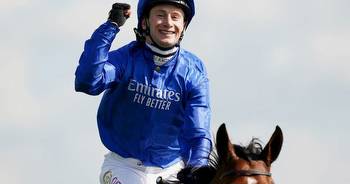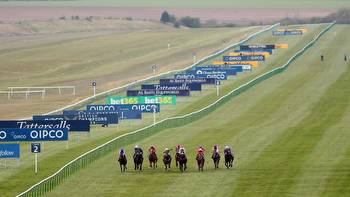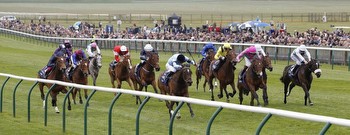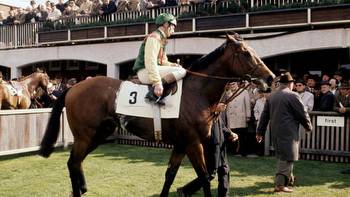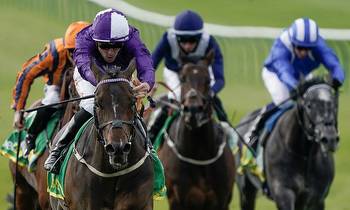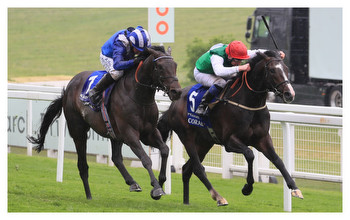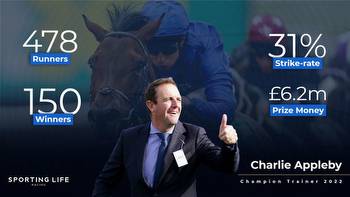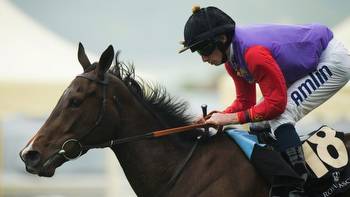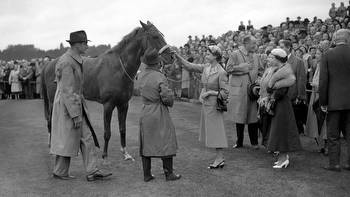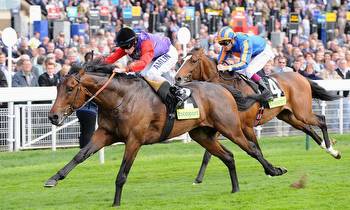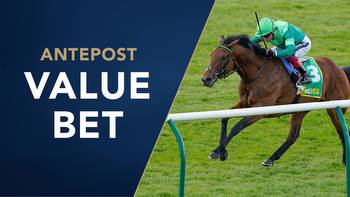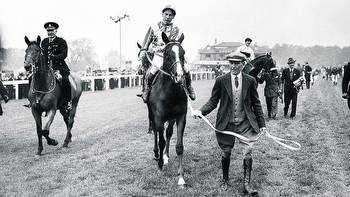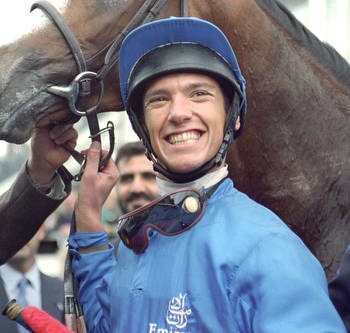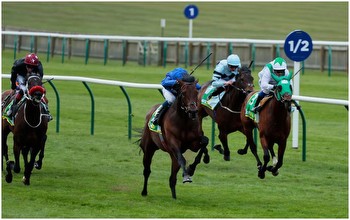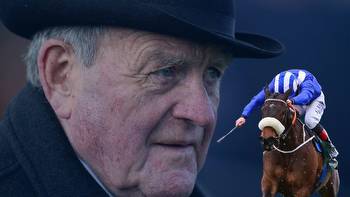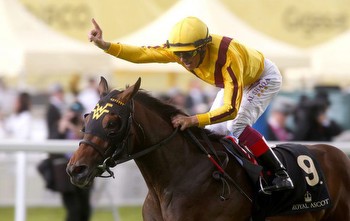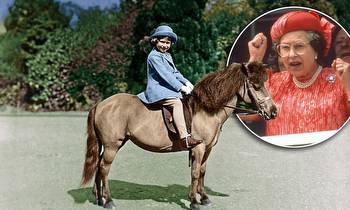How Scottish trained 2000 Guineas winner Rockavon earned his status as a Scottish sporting great
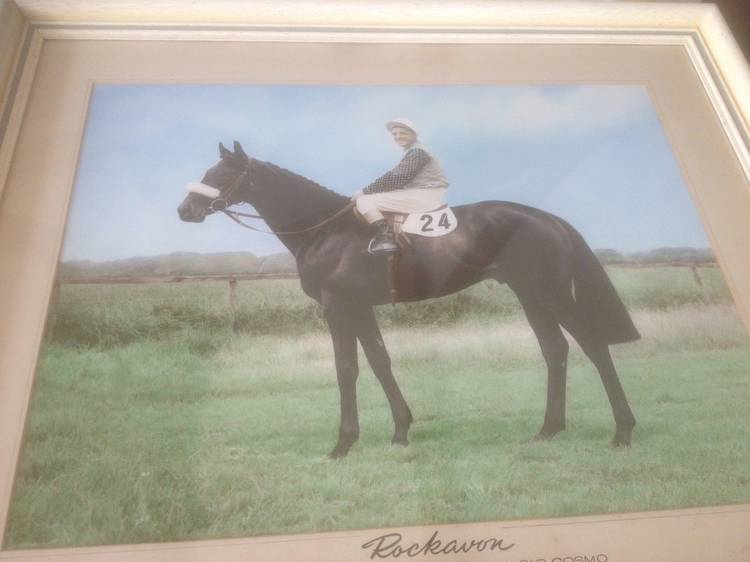
When The Herald listed ‘Scotland’s 100 Greatest Sporting Icons’ to kick off 2017 our head of sport was making a bit of a point as well as having some fun when he threw into the mix some of the nominations which occupied spaces lower down.
The selection of ‘Gregory’s Girl’ Dee Hepburn saw more than a few mistakenly seek to claim that with relatively few women on the overall list, the selection of an actress rather than a serious sportswoman was somehow demeaning. They were put straight by Lynn Abrams, Professor of Modern History, Head of School of Humanities at the University of Glasgow, to explain that the character has taken on iconic status because prior to that girls were generally prevented from playing football at school.
We also listed Kingsley, the Partick Thistle mascot whose inclusion was questioned because of his recentness and general ugliness, yet whose impact in raising awareness of the club after becoming a social media phenomenon offers lessons on the importance of embracing such devices in an increasingly commercial world.
And then there was Rockavon, standard bearer for the four-legged friends who have carried the sporting dreams of so many.
It was a series from which we expected to get considerable feedback and duly did, but one of the more surprising examples came on that first day of publication with a call from a farmer in Strathaven by the name of Tom Yuill.
He was, he explained, the son of Rockavon’s owner - also Tom Yuill - and our selection of the winner of the 1961 2000 Guineas had brought back memories of his late father’s passion for horse racing.
Most of them are fond, but ahead of this year's 2000 Guineas, which takes place at Newmarket today, there were lessons to be learned which took on added topicality last month when One for Arthur became just the second Scottish-trained horse to win the Grand National.
Yuill sr was the son and grandson of Glasgow horse dealers who also farmed at Strathaven. A student of form who always had a good eye for a horse he bought Rockavon in 1958, placing him in the care of Dunbar trainer George Boyd.
In those days potential contenders for the Classics had to be entered as yearlings and their decision to make that investment was a statement of confidence in the horse by both men.
By the time they went to Newmarket that spring weekend 56 years ago Rockavon had claimed three victories in minor races as a two-year-old and had just one previous outing as a three-year-old.
“He ran the Free Handicap at Newcastle, first race out of the year, probably not quite tuned up and he finished fourth to another horse that ran in the 2000 Guineas called Duel,” Yuill noted.
Consequently, with Duel also among the contenders for the 2000 Guineas, long odds were available: “They were 66-1 in the books and 106-1 if you bet him in the Tote.”
His victory by two lengths was, then, one of the great surprise wins in Classic history, but rather than respected Rockavon has tended to be derided by some of the sport’s historians.
That, Yuill believes, is profoundly unfair and, for all that he met the horse just once, the weekend after the 2000 Guineas, his attachment to the story is such that he felt compelled to explain Rockavon’s failure to follow up on that 2000 Guineas victory.
“After he won it no other trainer would put a horse up against him in the north of England and Scotland,” he said.
“The next race he ran was at Newcastle, probably a month or so later and he would still be in good shape, but there was only horse left in against him. I remember the name, Julia’s Hamlet. It hadn’t run for a year and half to two years, so it was not going to be wound up and Rockavon cantered in.”
Lacking match practise, so to speak, he was then once more put up against some of the best horses of his generation and by no means disgraced himself.
“He didn’t run again until the King George and Queen Elizabeth at Ascot. The 2000 Guineas was over a mile, father always thought he was best at a mile and a quarter, but this was a mile and a half. There were only four horses in race… that year’s French derby winner, Right Royal V, the previous year’s English derby winner St Paddy, Rockavon and a horse called Apostle.
“Right Royal won, St Paddy was second and Rockavon third and I think there were two or three lengths between first and second and second and third. For Rockavon to be useless, to run St Paddy, who would be trying his best, to two or three lengths over St Paddy’s distance doesn’t suggest he was totally useless.”
His next and final competitive outing was something of a disaster, doubtless seized upon by his critics and Yuill admits his father, who had been thanked by Bill McHarg, the clerk of the course, for bringing Rockavon and consequently attendant crowds to Ayr races when he ran in the Doonside Cup.
“Father always felt quite bad about it because when the horse came out in the pre-parade ring he looked at him and thought, ‘My God, he’s fit to win Ayr Show, not at Ayr Races.’ He was just overweight,” he said.
Denied decent racing, the horse was also unable to do the necessary work to stay in shape.
“The problem was that Ayrshire Bard, his training partner was the other good three year old George Boyd had at the time and it was ante-post favourite for the Derby after Rockavon won, but the horse had a problem, I think it was a heart murmur and had to be retired before the Derby. That was a matter of weeks later,” Yuill went on.
“Father always said in hindsight he should have used some of the money to buy a quality handicapper which would train alongside Rockavon.”
Yuill believes the problems faced then still remain for Scottish trainers in particular.
“You’re too far from the main races,” he said.
“It is still very difficult for Scottish owners and competitors. It’s the same as football where the television money is in the Premier League.”
He consequently reckons Rockavon’s success is pretty much unique and worthy of additional credit rather than scorn.
“Father isn’t the first Scotsman to own a Classic winner, but the others would be the likes of the Earl of Roseberry, the landed gentry and they would have their horses with the best north of England trainers or down at Newmarket with the trainers,” he noted.
A home-based, homegrown Scot that found it within himself to take on and beat the best. If that is not worthy of icon status, what is?
